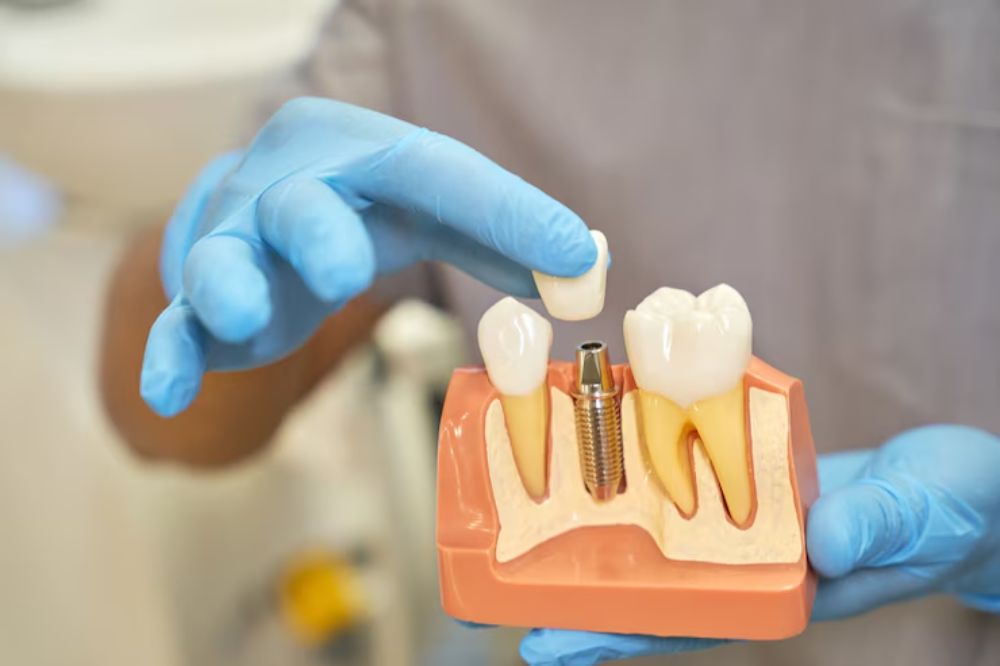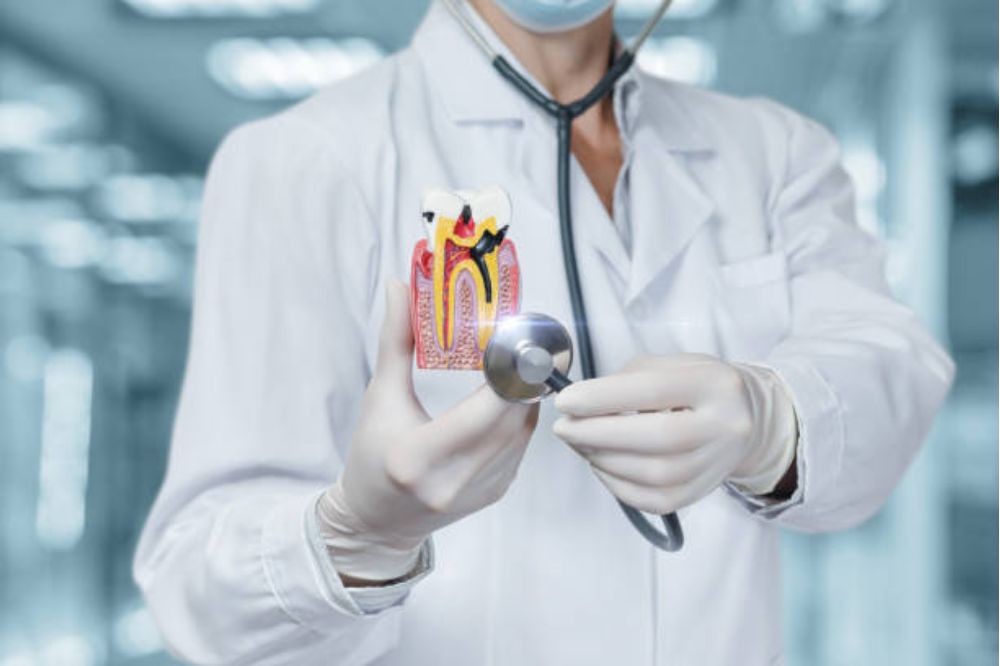
Losing a tooth doesn’t just impact the appearance of your smile. Something else happens under the surface, something that’s more serious than your smile: your jawbone begins to shrink!
This can change the shape of your face, put pressure on your bite, and reduce opportunities for dental treatments in the future.
Once bone loss begins, it can be hard to stop. You may not even know it’s happening. Thankfully, dental implants in Richmond can protect your jaw and perhaps even help you redefine what’s lost. Dental implants can help maintain bone strength if you act quickly!
Why Does Bone Loss Happen After Tooth Loss?
Your teeth do more than help you chew; they keep your jawbone healthy. Each time you chew, your tooth roots stimulate the bone underneath, which helps it stay strong.
When a tooth is gone, the bone in that area stops getting stimulation. Over time, your body starts to break down that bone. You can lose up to 25% of the bone in that spot in just the first year. This can:
- Change the shape of your face
- Make other teeth shift or become loose
- Make it harder to replace teeth later
How Can Implants Help?
Dental implants function similarly to the roots of natural teeth. When a metal post is inserted into your jawbone, your bone gradually develops around it. We refer to this process as osseointegration.
As the implant fuses with the bone, it helps stop bone loss and keeps the bone strong, just like a real tooth would; that’s why dental implants and bone loss are closely connected.
Dentures and bridges don’t go into the bone. They sit on top of your gums, so they don’t stop the bone from shrinking.
Can Implants Reverse Bone Loss?
Yes, in certain situations. Implant placement can slow down or possibly aid in bone reconstruction if your bone loss isn’t too severe. The jawbone continues to function because it is being stimulated again.
However, if too much bone has been lost, your dentist might need to do a bone graft. This is a procedure where extra bone is added to your jaw to make it strong enough for an implant.
So while you can reverse jawbone loss with implants, the sooner you act, the better the results.
Signs You May Have Bone Loss
Bone loss doesn’t always show obvious signs early on. You might not feel pain or notice changes until it becomes serious. Some signs include:
- Teeth starting to feel loose
- Spaces forming between teeth
- Dentures that no longer fit well
- A sunken or aged look in your face
To be sure, visit a dentist in Richmond. They can take X-rays and see if bone loss is happening.
Are You a Good Candidate for Implants?
Your dentist will check:
- How much bone do you have
- Your overall health
- If you have gum disease or smoke
- How well you heal from procedures
Even if your bone is weak now, a dental clinic in Richmond may be able to help you prepare for implants with a bone graft. Once placed, implants can last many years and help protect your jaw from further damage.
Don’t Let Bone Loss Get Worse
Tooth loss can cause more harm than you might think. Once the bone starts shrinking, the damage becomes harder and more expensive to fix. The earlier you act, the more of your natural bone you can keep.
Missing teeth do more than create gaps; they slowly damage your jaw from the inside. Bone loss can change the way your face looks and weaken the foundation for other teeth.
Dental implants don’t just replace teeth; they protect the bone that holds them in place.
Don’t Wait Until It’s Too Late.
At The Urban Dentist, we’re here to help you protect your jaw health and restore your smile with long-lasting solutions like dental implants. Talk to our team today to learn what options are right for you.






